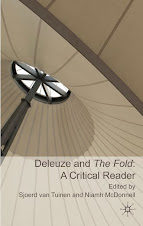French Theory
How Foucault, Derrida, Deleuze, & Co. Transformed the Intellectual Life of the United States
How Foucault, Derrida, Deleuze, & Co. Transformed the Intellectual Life of the United States
François Cusset
Translated by Jeff Fort
-
Synopsis
-
The must-read exposé of America’s love/hate affair with French theory.
-
During the last three decades of the twentieth century, a disparate group of radical French thinkers achieved an improbable level of influence and fame in the United States. Compared by at least one journalist to the British rock ‘n’ roll invasion, the arrival of works by Michel Foucault, Jacques Derrida, Jean-François Lyotard, Jean Baudrillard, Gilles Deleuze, and Félix Guattari on American shores in the late 1970s and 1980s caused a sensation.
-
Outside the academy, “French theory” had a profound impact on the era’s emerging identity politics while also becoming, in the 1980s, the target of right-wing propagandists. At the same time in academic departments across the country, their poststructuralist form of radical suspicion transformed disciplines from literature to anthropology to architecture. By the 1990s, French theory was woven deeply into America’s cultural and intellectual fabric.
-
French Theory is the first comprehensive account of the American fortunes of these unlikely philosophical celebrities. François Cusset looks at why America proved to be such fertile ground for French theory, how such demanding writings could become so widely influential, and the peculiarly American readings of these works. Reveling in the gossipy history, Cusset also provides a lively exploration of the many provocative critical practices inspired by French theory. Ultimately, he dares to shine a bright light on the exultation of these thinkers to assess the relevance of critical theory to social and political activism today—showing, finally, how French theory has become inextricably bound with American life.
-
“In such a difficult genre, full of traps and obstacles, French Theory is a success and a remarkable book in every respect: it is fair, balanced, and informed. I am sure this book will become the reference on both sides of the Atlantic.” — Jacques Derrida
-
“A great story, full of twists and turns. . . . Careers made and ruined, departments torn apart, writing programs turned into sensitivity seminars, political witch hunts, public opprobrium, ignorant media attacks, the whole ball of wax. Read it and laugh or read it and weep. I can hardly wait for the movie.” —Stanley Fish, Think Again, New York Times
-
“Cusset analyzes cultural theory within its cultural matrix without disappearing into an abyss along the way. Easier said than done, but French Theory manages the trick, sometimes brilliantly.” —Bookforum
-
“The publication of François Cusset’s French Theory raises a series of fascinating questions concerning the trans-Atlantic transmission and circulation of ideas. Most important, it impels us to inquire why for a time French thought managed to flourish in American universities while French intellectuals rapidly abandoned the entire paradigm.” —The Chronicle of Higher Education
-
François Cusset, a writer and intellectual historian, teaches contemporary French thought in Paris at the Institut d’Etudes Politiques and at Columbia University’s Reid Hall. His books include Queer Critics and La Décennie.
-
Jeff Fort is assistant professor of French at the University of California, Davis. He has translated works by Maurice Blanchot, Jean Genet, and Jean-Luc Nancy.
-
408 pages 6 x 9 2008
-
-
-
TABLE OF CONTENTS
-
Preface to the English Edition
-
Introduction: The Sokal Effect
-
Part I. The Invention of a Corpus 1. Prehistories 2. The Academic Enclave 3. The Seventies: A Turning Point 4. Literature and Theory 5. Deconstruction Sites
-
Part II. The Uses of Theory 6. The Politics of Identity 7. The Ideological Backlash 8. Academic Stars 9. Students and Users 10. Art Practices 11. Theoretical Machinations
-
Part III. There and Back 12. Theory as Norm: A Lasting Influence 13. Worldwide Theory: A Global Legacy 14. Meanwhile, Back in France . . .
-
Conclusion: Difference and Affirmation
-
Acknowledgments
-Translator’s Acknowledgments
-Notes
-Index
--
-
-





